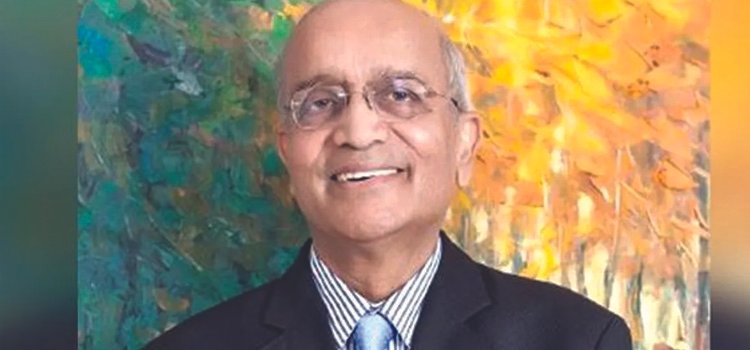CORPORATE
Chairman Bhargava drives down memory lane to understand a 40-year wonder called Maruti
- IBJ Bureau
- Aug 26, 2022

From what started out as an “accident” doomed to fail to becoming a dominant force in the automotive industry, helping the country to become the fourth largest automobile market in the world, the success needs to be replicated in other industries, according to Maruti Chairman R C Bhargava. As the company gears up to celebrate 40 years of operations, Mr Bhargava notes that Maruti Suzuki India has played a significant role in the development of the country’s automotive industry, supply chain of components and allied sectors which are now playing a major role in the global markets.
In an interview with the PTI, he adds that India is generally ranked low globally when it comes to the overall manufacturing sector, but in automobiles, the country is the fourth- largest car manufacturer in the world. Also, the components industry last year exported $19 billion worth of items.
“So, some of these things have to be viewed in the context of what we added to that thing,” he asserts, adding that it is also the most successful Japanese car joint venture in the world.
Mr Bhargava asks: “Why does something, which was so much doomed to failure by all the experts, become one of the most successful companies? And therefore the question which should be asked, I think, because it’s important to know why something which is not supposed to happen happened. If it happened in Maruti, why not in other industries? It’s the same country, the same people…?”
The reason for Maruti’s success was its ability to understand the aspirations of the Indian people, the Japanese management system of efficiency and resource optimisation and trust between partners, management, workers and other stakeholders.
However, he points out that the journey for Maruti was not a smooth one and was full of challenges.
“We know how Maruti started and why it started. It was an accident. It was not a planned move on the part of the government that we need to develop a car industry in India that would be good for the economy, good for jobs, nothing of the kind,” Mr Bhargava recollects.
According to him, the project was taken up by then Prime Minister Indira Gandhi to do something to “perpetuate what was closest to the heart” of her son Sanjay Gandhi who died in a plane crash. Sanjay loved car-making. “So, she wanted that what was closest to Sanjay’s heart should not die with him and against all wisdom of that time, she decided to start a car factory,” Mr Bhargava recollects.
At a time when existing car manufacturers Hindustan Motors and Premier were not even allowed to import technology, a public sector company was founded in such a low-priority area and was asked to bring in foreign equity, he points out.
“Everybody thought or believed that this was a political project which in a way it was. The same belief was known to all the carmakers the world over. When initially the government approached carmakers for collaboration and joint venture partners, nobody was willing to put in 40 per cent equity in cash,” he recollects.
The global manufacturers were offering only second-hand equipment, dyes and fixtures, but Suzuki was the only company which was willing to invest, for which Osamu Suzuki was also severely criticised in Japan, Mr Bhargava adds.
“Forty years later, people have forgotten how and why Maruti, which was not supposed to last, has still lasted…. Why, despite all conventional wisdom that Maruti should fail in those times, it has actually succeeded. And I think that’s one of the key points of this 40 years thing,” Mr Bhargava points out.
Maruti Suzuki is the leading carmaker in the country with a market share of more than 43 per cent in the passenger vehicle segment.
The auto major had achieved its highest-ever annual sales of 17,29,826 units in 2018-19, cornering a market share of 51.21 per cent. It, however, declined to 43.38 per cent at 13,31,558 units in 2021-22.
In FY22, the company reported total consolidated revenue from operations at Rs 88,330 crore.
Its parent Suzuki Group has so far invested Rs 65,000 crore in India.
























Report By
View Reporter News